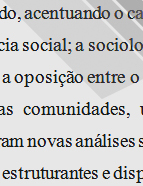

................................
The truth is that, despite this archival network, institutional history was based mainly on legal sources, and therefore the 19 th century was the century of the publication of collections of legislation: laws, decrees, charters, regulations, rules, supplements, repertoires, indexes and aids (see the panoply of this variety in A.M. Hespanha , A História do Direito na História Social , Lisbon, 1978). It was, in fact, this demand for printed legislation that led to the proliferation of specialised printing workshops, the most important of which were the workshop of João António da Silva (1778), António Rodrigues Galhardo, Miguel Rodrigues and Nunesiana (1797-1801), the printing houses Maigrense and Luís Correia da Cunha (1825-1860), Viúva Silva e Filhos and Alípio Castello Branco (1838-1842). This collecting craze was accompanied by encyclopaedic works that are still essential reading today, such as Diccionario Bibliographico Portuguez (continued by Wesceslau de Brito Aranha and J.J. Gomes de Brito) by Inocêncio Francisco da Silva (1810-1876), 1858-1958, 25 volumes; by Clemente José dos Santos (Baron of São Clemente, 1818-1892), stenographer at the Chamber of Peers, Documentos para a História das Cortes Geraes da Nação Portuguesa (1884, eight volumes); by the Viscount of Santarém (1791-1856), Memórias para a História , e Theoria das Cortes Geraes , que em Portugal se celebraram pelos Tres Estados do Reino, ordennadas e compostas neste anno de 1824 [Memoirs for History, and Theory of the General Courts, which were held in Portugal by the Three States of the Kingdom, ordered and composed in this year of 1824] (1827-8), with a new edition and a study by António Sardinha (1924), the Diccionário Jornalistico Portuguez by Augusto Xavier da Silva Pereira (1838/1902), 1889, or the Diccionario Histórico, Chorografico , Heraldico , Biographico , Bibliographico , Numismatico e Artistico (1904-1915).
This work is financed by national funds through FCT - Foundation for Science and Technology, I.P, in the scope of the projects UIDB/04311/2020 and UIDP/04311/2020.
